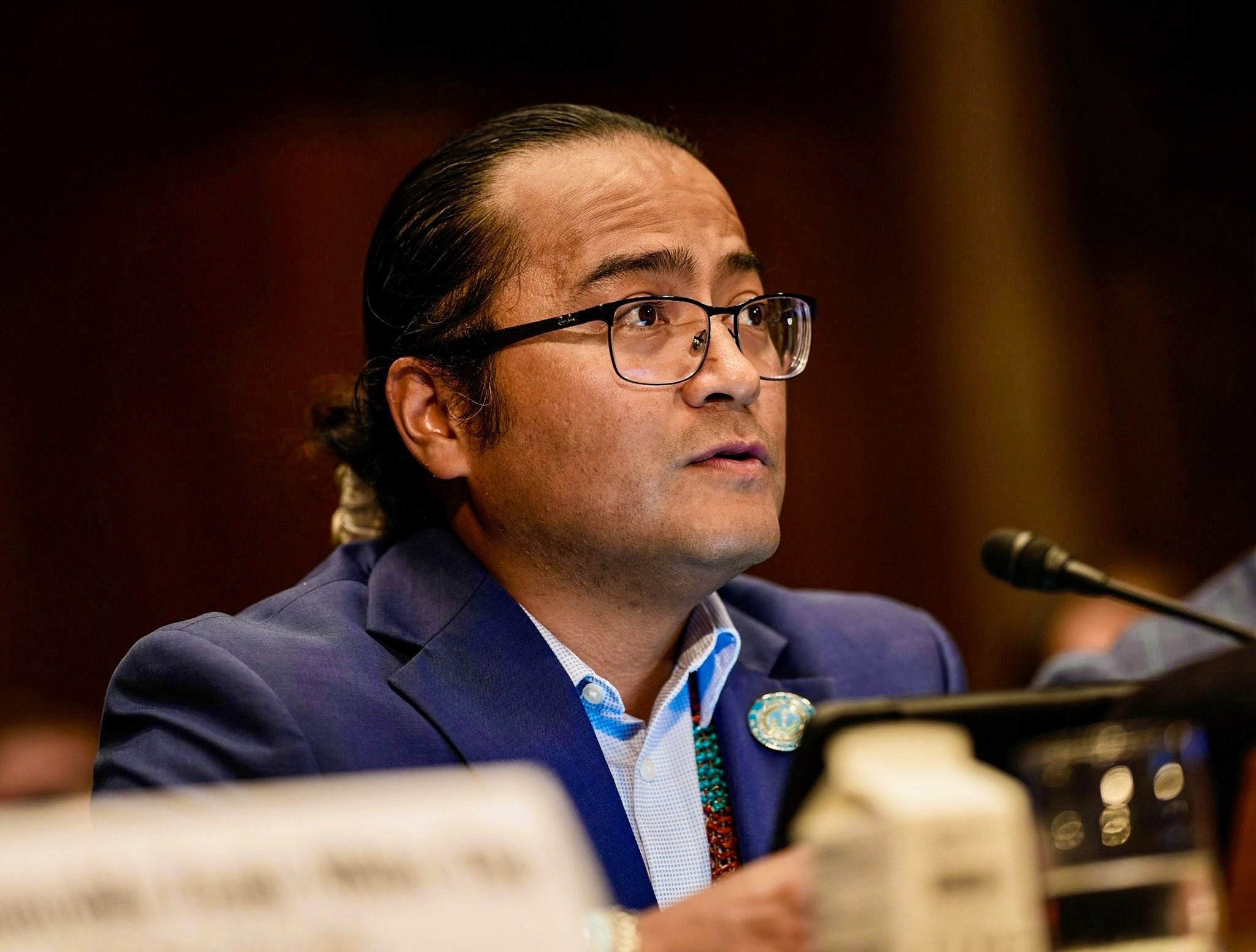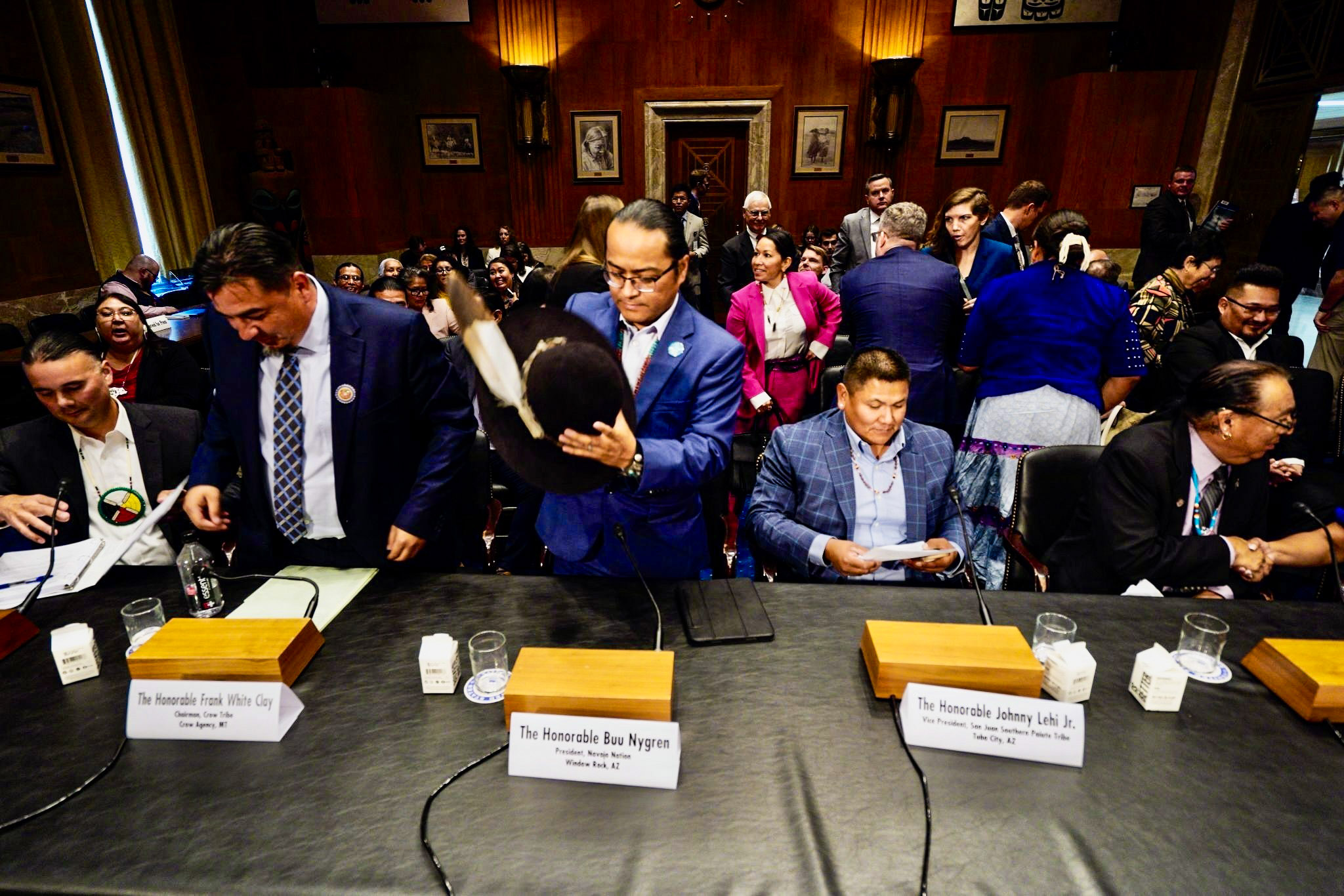WASHINGTON, D.C. — Seven states that rely on the Colorado River each got a cut of its water under a deal struck over a century ago – a deal that excluded the Hopi, the Navajo and other tribal nations.
After years of pressure and negotiation, Congress is moving to rectify what the tribes have long seen as an injustice that has caused enormous hardship.
“We’re closer than we’ve ever been before in reaching a final settlement,” Bryan Newland, assistant secretary for Indian Affairs with the Department of the Interior, told a Senate hearing on Wednesday.
Representatives from four Arizona tribes – the Yavapai-Apache Nation, Hopi, San Juan Southern Paiute and the Navajo Nation – said the settlements, once approved by Congress, will secure their long-standing claims and provide more accessible water for their people.
Almost a third of members of the Hopi, Navajo and other tribes have no running water, and leaders say the water currently available isn’t sufficient for growing populations.

“Congress must act to end the water crisis on the Navajo Nation,” said Navajo Nation President Buu Nygren, who recalled that he didn’t have running water until he went off to college at Arizona State University.
The water insecurity crisis has been felt for generations, he said.
Navajo people sometimes have to haul water for over 30 miles, a costly and time-consuming exercise.
The Yavapai-Apache Nation Water Rights Settlement Act of 2024 and the Northeastern Arizona Indian Water Rights Settlement Act of 2024 would provide funds for pipelines and other infrastructure. The bills would also impose pumping restrictions to ensure that groundwater is not depleted.
The process has been slow. The Gila River Adjudication process started over 50 years ago.
Disputes over the Colorado River stem from a 1922 compact between Arizona, California, Colorado, Nevada, New Mexico, Utah and Wyoming.
“Without the settlement, a cloud of uncertainty will remain over tribal water claims in the Colorado River basin and tens of thousands of tribal members will continue to struggle to meet their basic needs,” said Sen. Mark Kelly, a Democrat who introduced the settlement bills with fellow Arizona Sen. Kyrsten Sinema, an independent.

The Northeastern Arizona Indian Water Rights Settlement Act of 2024 would address claims to water from major stems of the Colorado River and Colorado River basin, providing running water to many Navajo and Hopi people.
It also sets aside 5,100 acres near Tuba City and another 300 acres in Utah to create a reservation for the San Juan Southern Paiute Tribe.
“The mental-emotional impact of being a landless, homeless tribe is something I wouldn’t wish upon anyone,” said Johnny Lehi Jr., the tribe’s vice president.
The infrastructure funding “would provide the water we need to make our nation a true homeland.”
The other Arizona bill ensures access to the Verde River in the Verde Valley for the Yavapai-Apache people. The bill would also provide over $1 billion for water infrastructure, pipelines and filtration systems.
Tanya Lewis, chairwoman of the Yavapai-Apache, said the upgrades are overdue, as are the federal efforts to ensure access to water.
“The legislation will finally grant us what the United States promised us in the 1852 Apache treaty,” she said, referring to a pact in which the United States assured tribal sovereignty, including protection of water rights, while requiring the Apache to end their incursions into Mexico.
According to Lewis, the tribe’s water rights were never explicitly taken away. Instead, she said, the reservation was opened to other settlers whose water usage left too little for the rest of the residents.
“The state of Arizona prospered while my people suffered,” she said.
For more stories from Cronkite News, visit cronkitenews.azpbs.org.Note: This story originally appeared on Cronkite News. It is published via a Creative Commons license. Cronkite News is produced by the Walter Cronkite School of Journalism and Mass Communication at Arizona State University.
Native America Calling: Tribes ponder blood quantum alternative
Defense bill snubs Indian Country in favor of Lumbee federal recognition
NAFOA: 5 Things You Need to Know this Week (December 8, 2025)
Chuck Hoskin: Cherokee Nation benefits from extension of health care credits
Native America Calling: Tribal museums reflect on tumultuous year, chart their next steps
Press Release: National Museum of the American Indian hosts Native art market
AUDIO: Sea Lion Predation in the Pacific Northwest
Native America Calling: Tribal colleges see an uncertain federal funding road ahead
Native America Calling: Short films taking on big stories
Native America Calling: Advocates push back against new obstacles to Missing and Murdered Indigenous Relatives momentum
Native America Calling: For all its promise, AI is a potential threat to culture
NAFOA: 5 Things You Need to Know this Week (November 24, 2025)
Chuck Hoskin: Cherokee Nation invests in rural transportation
Native America Calling: Native candidates make strides in local elections
More Headlines